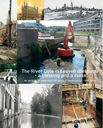Check out our most recent publications.
Economic welfare is traditionally measured using the gross domestic product (GDP). There are, however, also other factors to be taken into account, such as social and environmental aspects. The Index for Sustainable Economic Welfare (ISEW) offers an alternative approach. This MIRA report traces the evolution of the ISEW for Flanders over the period 1990-2013 using an improved methodology.
To what extent is climate change already visible in Flanders and Belgium? What are the expectations for the future? The answers to these questions can be found in the MIRA Climate Report 2015, which was compiled in collaboration with experts from the University of Leuven, the Flemish Institute for Technological Research (VITO) and the Royal Meteorological Institute (KMI).
Following the Megatrends study,1 the Flanders Environment Report (MIRA) of the Flanders Environment Agency (VMM) thought it would be useful to investigate the need for a full-fledged horizon scanning system. A horizon scanning system makes it possible to identify potential future developments and to assess their impact on the environment in time.
This publication aims to illustrate how perceptions and approaches to flood and water have changed using the River Dyle in Leuven as an example. It is the story of more than 120 years of struggling to develop and implement a strategy to keep the flooding of the River Dyle in Leuven and its surroundings under control.
The eENVplus project aims to unlock huge amounts of environmental data, managed by the involved national and regional environment agencies and other public and private environmental stakeholders, through the integration and harmonisation of existing services.
GeoSmartCity establishes a cross-platform, able to publish open geographic information and to provide specialized services based on open standards services protocols.
The ‘Air Pollution’ lesson package is designed for
students aged 9 - 12. In the UK this corresponds to
Year 5, 6 and 7 and corresponds to Key Stage 2.
The lesson package is built around four separate
interactive lessons.
This report provides a statistical overview of drinking water production and supply in Flanders from source to tap.
Introduction of the Joaquin project and information about air pollution
DROP is a transnational project and integrates knowledge from science, policy and practice. The project is implemented through collaboration between six regional water authorities (practice partners) and five knowledge institutes (knowledge partners).











